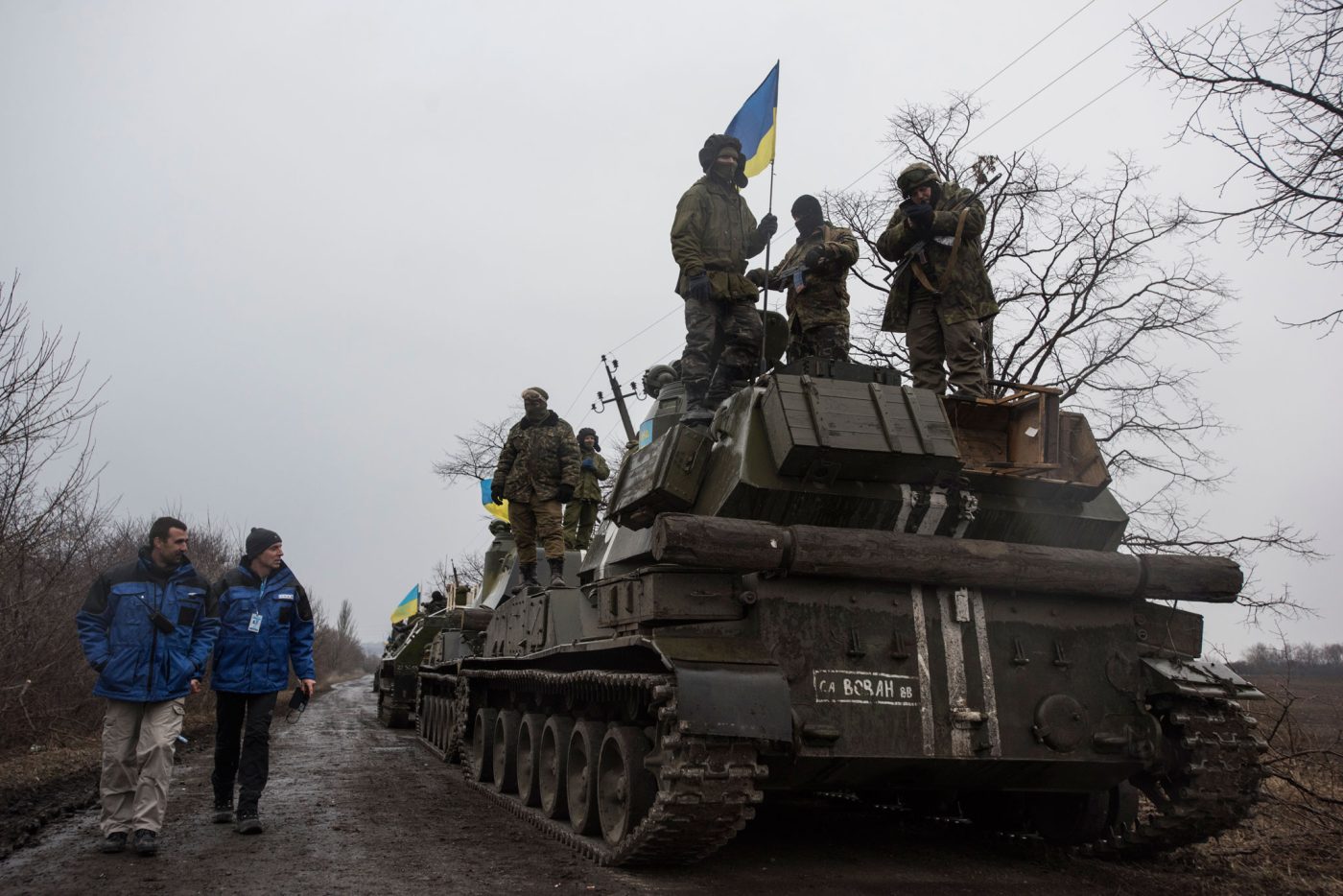On March 16, 2020, the sixth anniversary of Russia’s fraudulent referendum to annex Crimea, the European Union High Representative Josep Borrell Fontelles published a declaration reiterating the EU’s support for Ukraine’s territorial integrity and sovereignty. These declarations have become customary since 2014, on the anniversary of the referendum pushing back against the continued occupation by Russian forces. However, this year’s resolution comes at a new geopolitical moment. Amidst the ongoing COVID-19 crisis, this EU statement is an important sign of European solidarity at a moment when the transatlantic community is facing its greatest test of unity. Before the onset of the pandemic, statements from individual leaders on both sides of the Atlantic reflected diverging views on a variety of policy issues, including on how to approach Russia. Now is the moment, as the West is embroiled in a common crisis, to show greater engagement on Ukraine and take more active measures to change Russia’s behavior.
Ukraine has been a democracy under attack since the Russian invasion in 2014, which has caused over 10,000 civilian casualties and displaced close to 1.5 million people. The Ukrainian Energy Ministry reported that, by February 2019, Ukraine lost “80% of its oil and gas deposits in the Black Sea and a significant part of the port infrastructure due to the annexation of Crimea.” Despite this continued attack on its sovereignty and people, Ukraine consistently stands up to Russian aggression and upholds its democratic principles. Last year, the Ukrainian public reaffirmed their commitment to improving democratic institutions by electing a presidential candidate, Volodymyr Zelenskyy, who ran on a platform of anti-corruption and reform. While Zelenskyy’s record is mixed so far, his actions reflect a dedication toward ending the conflict with Russia while remaining devoted to Ukraine’s western orientation. Despite the December 2019 summit between Presidents Zelenskyy, Putin, Macron, and Chancellor Merkel, the eastern parts of Ukraine remain little closer to being returned to Ukrainian sovereignty than at the outset of the conflict.
Less than a month after the initial invasion, 100 countries, including all NATO members, expressed support of Ukraine’s territorial integrity in UN Resolution 68/262. The violation of a country’s borders in a revanchist attempt to rewrite history threatens the fabric on which international order stands. However, this resolution and subsequent sanctions have done little to prevent Russia’s militarization of the occupied territory of eastern Ukraine, exploitation of new economic opportunities to undermine Ukrainian sovereignty, and creation of a stronghold around the Black Sea in Crimea.
The crisis launched by the spread of coronavirus has put increased pressure on Ukraine, and on the West as a whole. Adversarial countries, like Russia and China, are using this moment to undermine the West, exploiting the information space, subverting multilateral and democratic institutions, and sowing discord among allies. But this is the time to come together as a united democratic front. In recent weeks we have seen China sending aid and medical supplies to nations in need around the world, attempting to prove that their authoritarian regime is more effective than the democracies of the West. The West must take back control of the narrative, showing its strength and creating a unified and cohesive strategy for supporting and defending Ukrainian sovereignty is the perfect opportunity to do so.
While the initial sanctions against Russia were implemented on a multilateral, transatlantic wide basis, supplemental sanctions and statements have not been undertaken with the same allied approach. Last month, Estonia, Denmark, Finland, Iceland, Latvia, Lithuania, Norway, and Sweden stressed the importance of intensifying “financial support for the humanitarian response in eastern Ukraine.” Following the March 2020 EU declaration, the Georgian, Latvian, and Polish Ministries of Foreign Affairs issued statements confirming their support of Ukraine and condemning Russia’s occupation of the region. The United States, moreover, has implemented additional sanctions against Russia and provided $1.5 billion in military aid to Ukraine. Secretary of State Mike Pompeo denounced Russia’s continued aggression and illegal actions in Ukraine in February 2019. The U.S. Department of State condemned Moscow for granting expedited citizenship to residents in Russia-controlled Ukraine in April 2019. While these statements and actions are a good start, in order to enact real change in Russian behavior and prove the strength of the transatlantic alliance, Western leaders need to take a unified strategic approach in responding to Russian aggression in eastern Ukraine.
The current COVID-19 crisis highlights the importance of transatlantic unity and cooperation. Lives have long been at stake in Ukraine, but this reality is now permeating all countries across the Atlantic community. As the coronavirus pandemic spreads, strategic thinking and collective defense cannot be set aside, as this is exactly the kind of environment Russia has a history of using to its advantage. Indeed, in Italy and elsewhere the Kremlin has already tried to use the chaos and confusion COVID-19 has wrought to slip the shackles of sanctions and international isolation imposed for its past bad behavior. As the pandemic continues, Ukraine also remains the place for Russia to take advantage of the West’s weaknesses, which could have dramatic effects for the entire community.
Now is the time for the West to take a more active role in altering the Kremlin’s revanchist actions, both to prevent the deteriorating security situation in the Black Sea from becoming a conflict zone and to protect Western values and principles which serve as the foundation for peace and prosperity. Individual statements and declarations are not enough to change the Kremlin’s behavior. A consolidated Western policy, including consistent messaging, expanded economic, diplomatic, and military sanctions on Kremlin-associated entities, and increased aid to the Ukrainian government from multinational organizations and individual allied countries are needed for the Moscow to take the West seriously.
Europe’s Edge is CEPA’s online journal covering critical topics on the foreign policy docket across Europe and North America. All opinions are those of the author and do not necessarily represent the position or views of the institutions they represent or the Center for European Policy Analysis.





